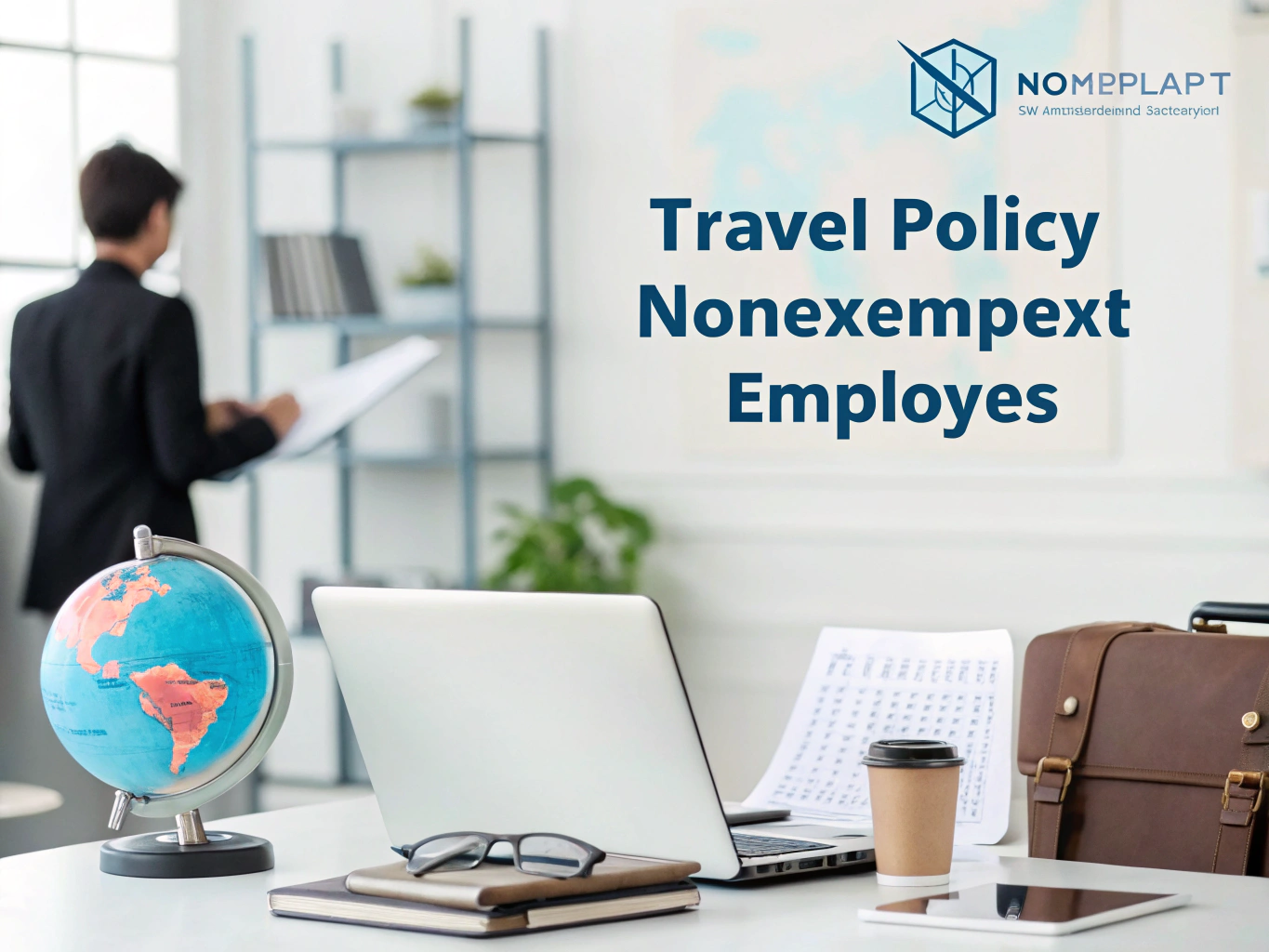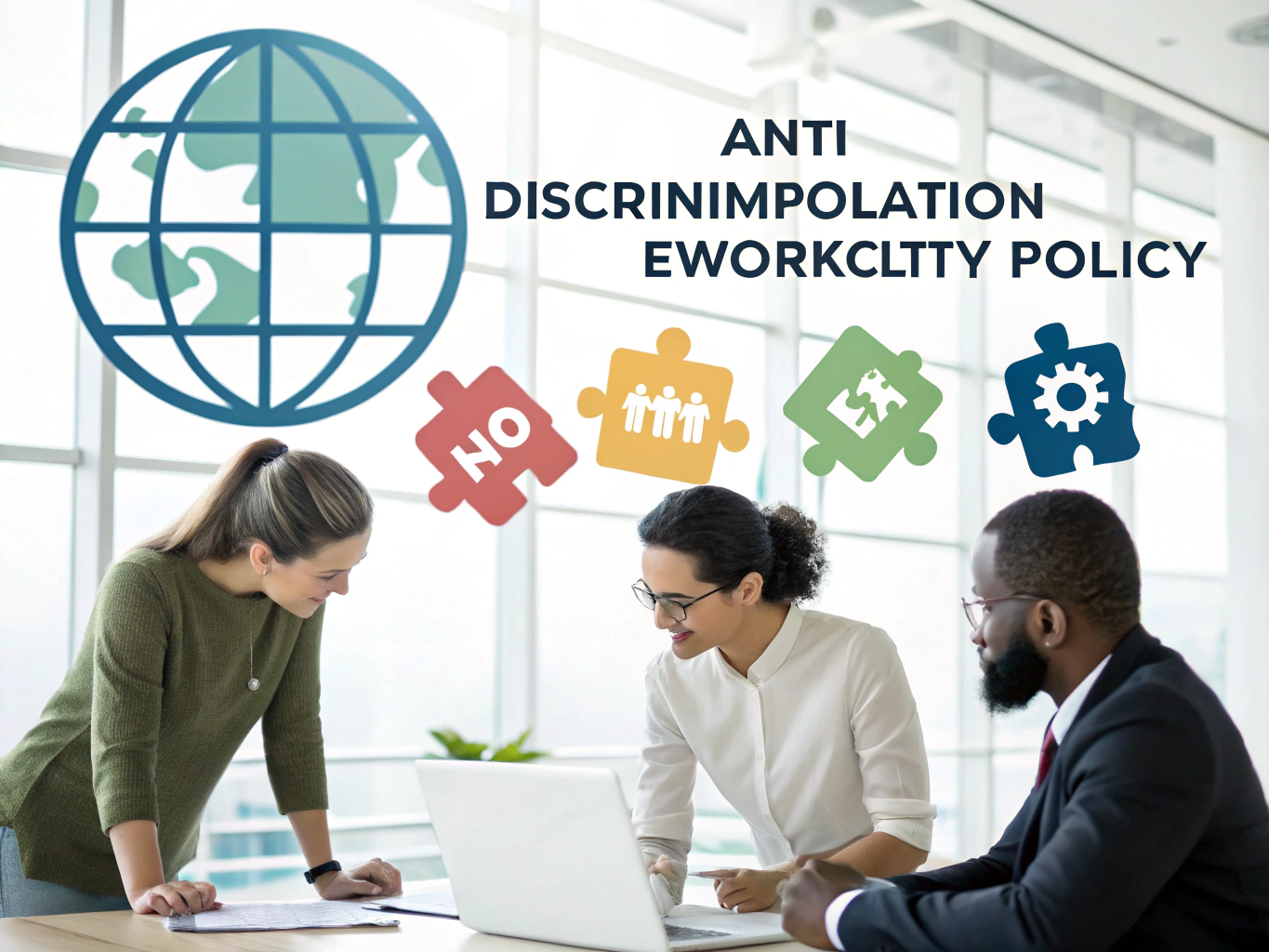Definition
A Travel Policy for Nonexempt Employees is a structured guideline that outlines how employees eligible for overtime pay should manage their work-related travel. This policy ensures that all travel arrangements, expenses, and safety measures are handled consistently, efficiently, and in compliance with labor laws. By having a clear policy in place, you not only help employees understand what to expect while traveling but also protect your organization from potential legal issues.
Key Components
When it comes to a Travel Policy for Nonexempt Employees, there are several essential components that you should consider. Each element plays a vital role in ensuring that travel is both effective and compliant.
- Travel Authorization: Before any trip, employees must seek approval from their supervisors. This usually involves completing a Travel Authorization Form that details the trip’s purpose, dates, and estimated costs. For example, if an employee needs to attend a conference, they must outline how this trip will benefit the company.
- Booking Travel: All travel should be arranged through the company’s approved channels, such as a designated travel agency or an online booking tool. Encouraging employees to choose the most cost-effective options that suit their business needs not only saves money but also fosters a culture of responsibility.
- Expense Reporting: Once back from their trip, employees are required to submit an expense report within five business days. This report should detail all reasonable expenses incurred, from transportation to meals. For instance, if an employee attended a meeting and had to stay overnight, they would need to report their hotel costs and meal expenses accurately.
- Per Diem Allowance: To simplify expense tracking, many companies provide a per diem for meals and incidentals based on the travel location. Employees must adhere to these rates and keep accurate records of their spending. This can prevent disputes and ensure everyone is on the same page.
- Travel Insurance: Offering travel insurance coverage for employees traveling for business helps mitigate risks. Employees should be made aware of what the insurance covers and the process for filing claims, ensuring they feel secure while representing the company away from home.
- Safety and Security: Employees are responsible for their safety when traveling. This means following all company and governmental travel advisories. For example, if travel warnings are issued for a certain area, it’s crucial to have protocols in place that guide employees on assessing whether it is safe to proceed with their travel plans.
Importance in the Workplace
Having a well-defined Travel Policy for Nonexempt Employees is crucial for several reasons. First and foremost, it sets clear expectations for employees, reducing confusion and potential conflicts over reimbursements and travel arrangements. For instance, if an employee is traveling to a client meeting and is unsure about what expenses are covered, having a policy can provide guidance and assurance.
Secondly, a transparent policy fosters trust and morale among employees. When they see that the company cares about their well-being and financial interests while traveling, it can enhance job satisfaction and loyalty. For example, if employees know they will be reimbursed for their meals and lodging without hassle, they are likely to feel more valued and supported.
Finally, a comprehensive travel policy minimizes the risk of legal issues related to labor laws. When employees know their rights regarding pay and reimbursements during travel, it protects both them and the organization from potential disputes.
Best Practices
To ensure your Travel Policy for Nonexempt Employees is effective and beneficial, consider implementing the following best practices:
- Regularly Review and Update: Ensure that your travel policy is not stagnant. Regularly review it to incorporate changes in labor laws or company needs. This keeps the policy relevant and compliant.
- Provide Training: Offer training sessions to educate employees about the travel policy. This helps them understand the nuances and reduces the likelihood of violations. Consider hosting a Q&A session after the training to address any concerns.
- Encourage Feedback: After employees return from their trips, solicit their feedback on the travel process. This can provide insight into what works well and what doesn’t, allowing you to make necessary adjustments.
- Use Technology: Leverage travel management software to streamline the booking and expense reporting processes. This can make it easier for employees to comply with the policy and for HR to manage reimbursements efficiently.
- Communicate Clearly: Make sure the travel policy is easily accessible, perhaps on an internal portal or employee handbook. Clear communication about the policy helps avoid misunderstandings and ensures everyone is on the same page.
Legal Considerations
When crafting your Travel Policy for Nonexempt Employees, it’s essential to stay compliant with federal and state labor laws. Nonexempt employees are entitled to overtime pay, which means any time spent traveling for work must be considered when calculating hours worked. Make sure your policy reflects this and includes guidelines on how travel time is recorded and compensated. For instance, if an employee travels to a conference that starts early in the morning, their travel time should be compensated as hours worked, including any overtime if applicable.
Additionally, ensure that all reimbursement processes comply with IRS guidelines to avoid tax complications for both the company and the employees.
Conclusion
Understanding and implementing a Travel Policy for Nonexempt Employees is vital for fostering a supportive and legally compliant workplace. By providing clear guidelines, you can empower employees to travel confidently while ensuring the company is protected from legal pitfalls. With a well-structured policy in place, you’re not only streamlining operations but also enhancing employee satisfaction and loyalty. Remember, a successful travel policy is one that evolves with your company and its workforce, prioritizing clarity, compliance, and compassion.




